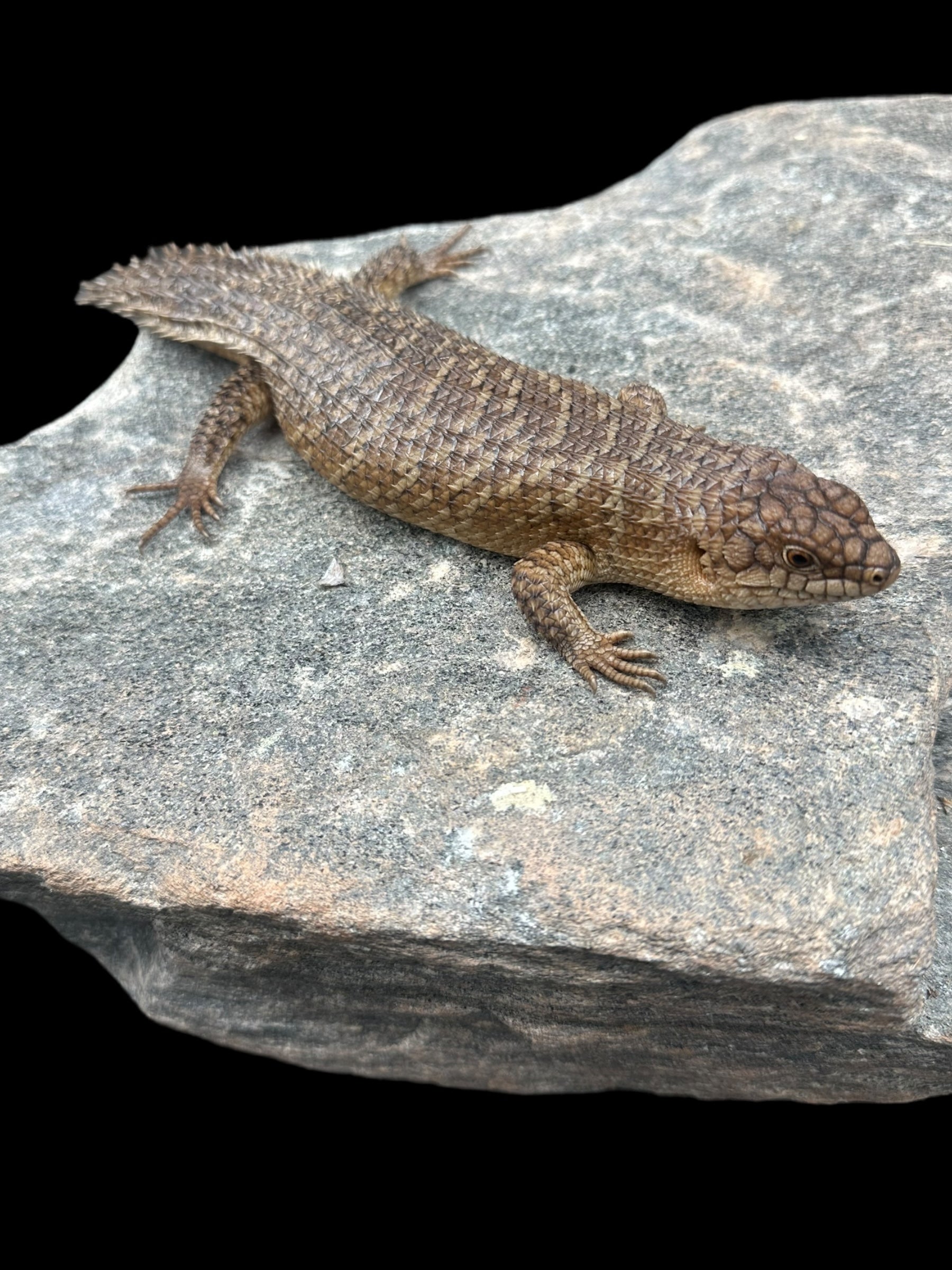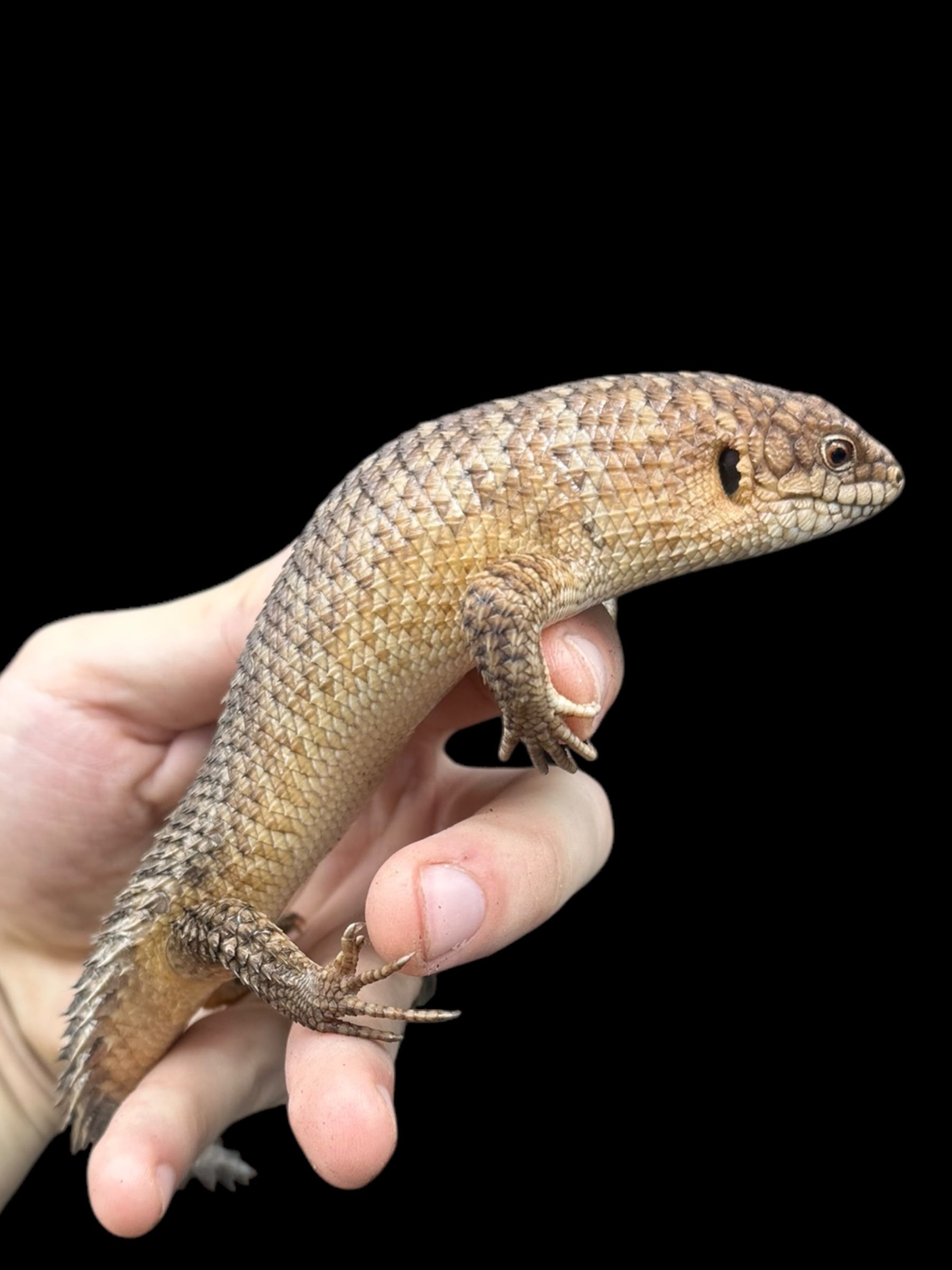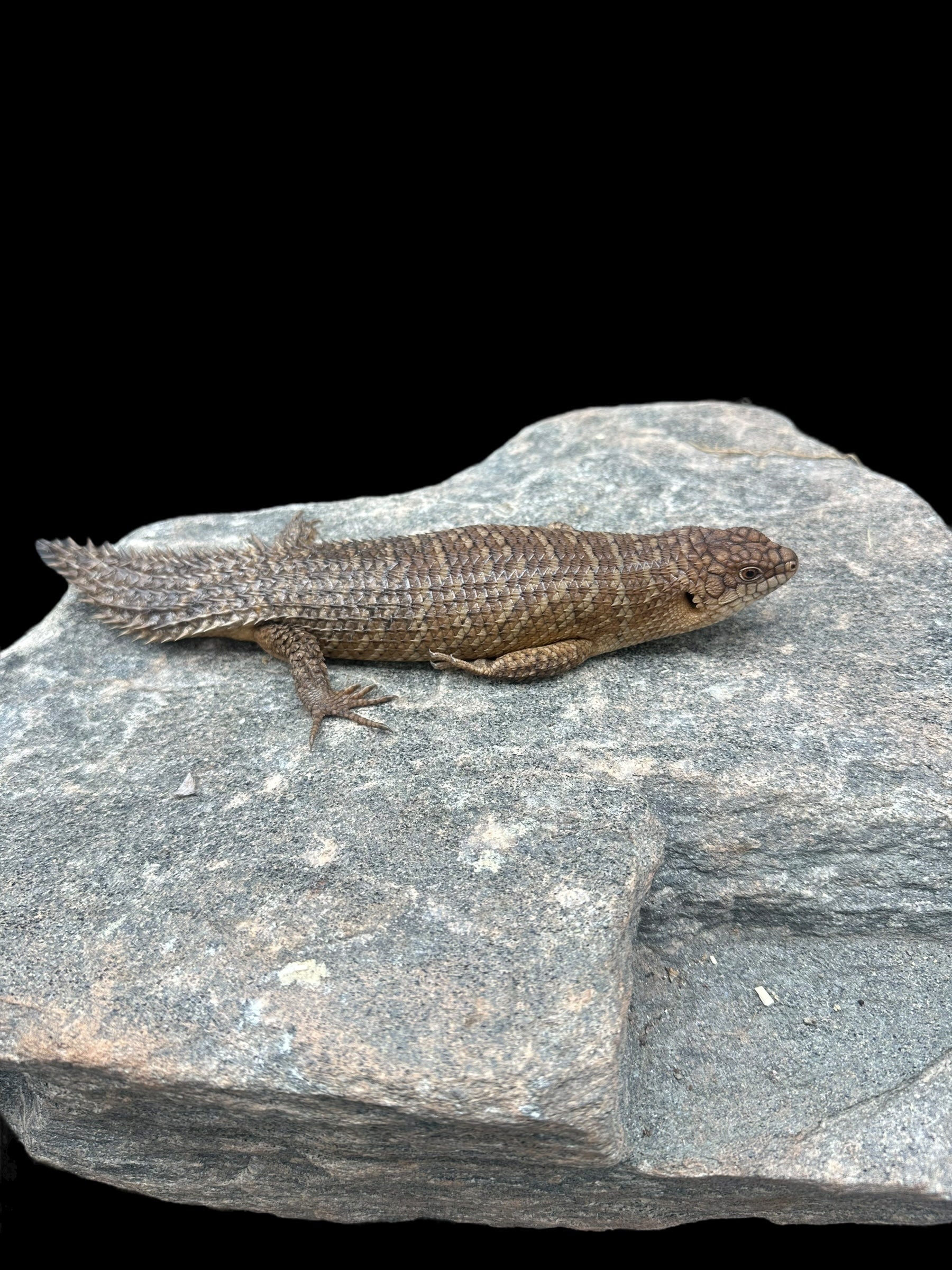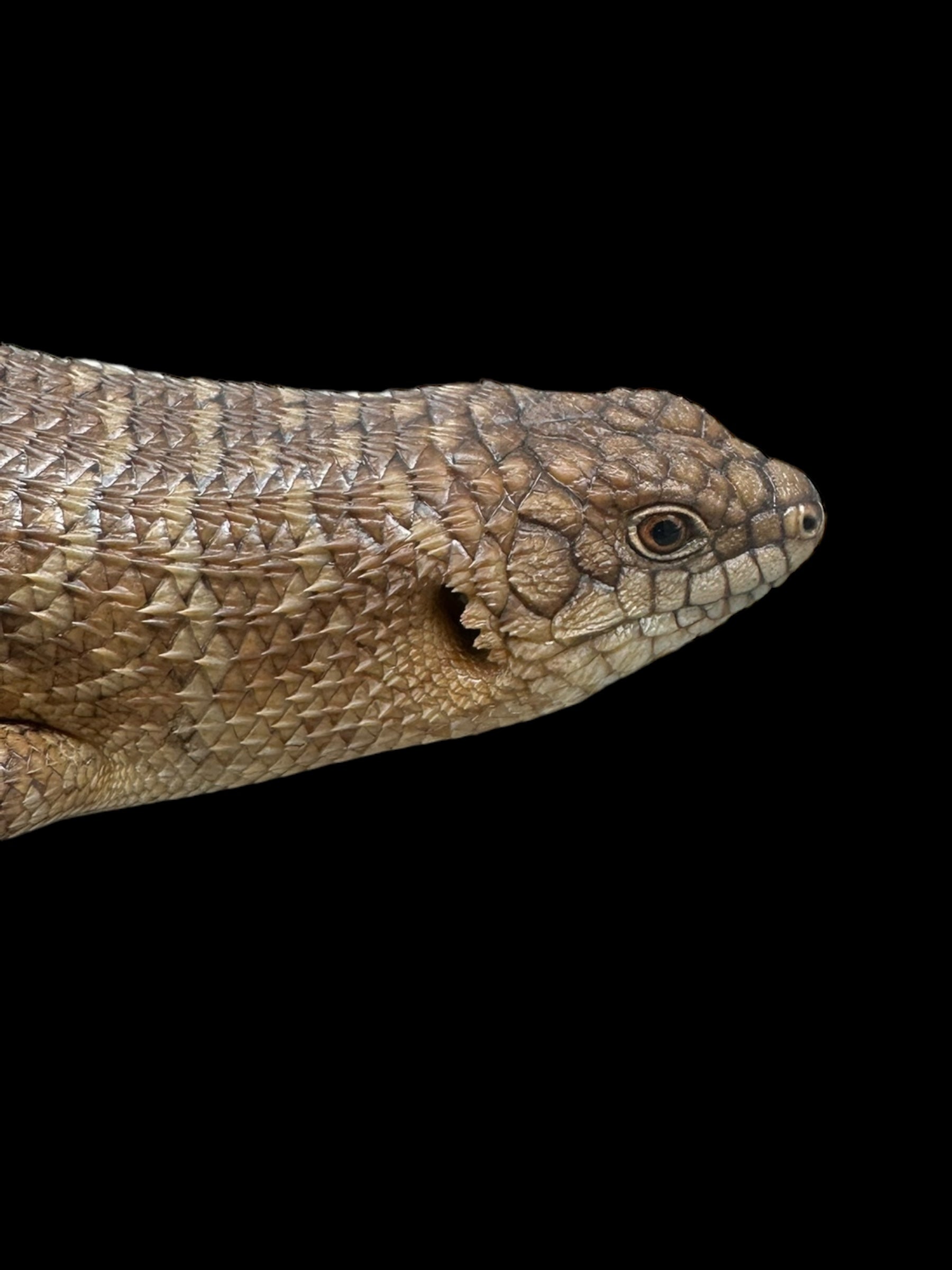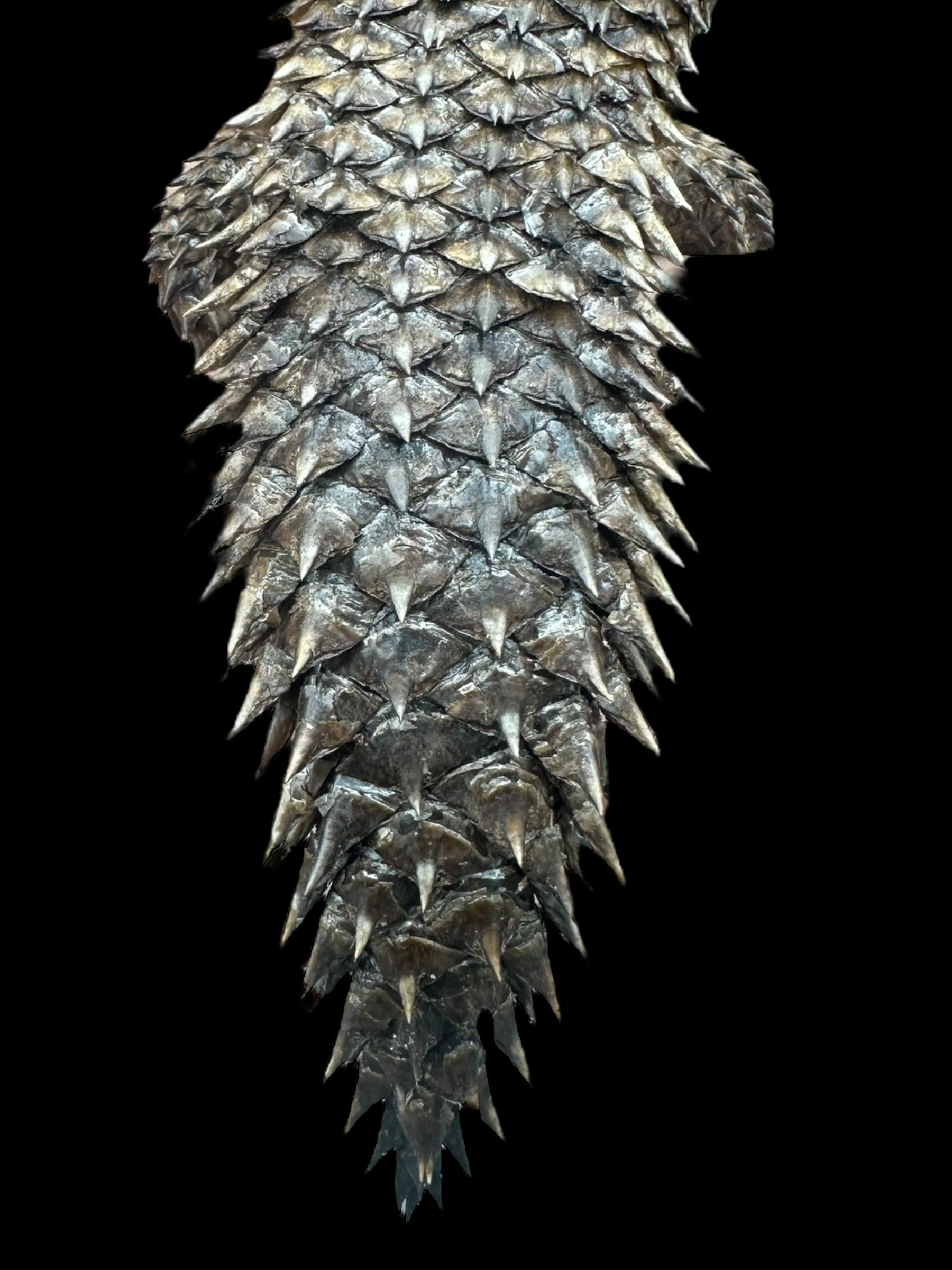Photo Disclaimer
Description
The Gidgee Skink (Egernia stokesii) is a unique and social species of spiny-tailed skink found in semi-arid regions across Australia. This medium-sized skink, recognized for its short, spiny tail and keeled scales, typically forms stable social groups, which can include up to 17 closely related individuals. These groups share well-defined home ranges, often sheltering in rock crevices, split trees, or logs, and even establish communal scat piles, likely as a means of scent communication to ward off predators. The skinks are omnivorous, feeding on a diet of vegetation, insects, and small invertebrates.
Egernia stokesii exhibits fascinating behavioural adaptations, such as inflating their bodies to wedge themselves into tight crevices when threatened, making it difficult for predators to dislodge them. These skinks are highly monogamous, with females giving birth to small litters of 1-8 live young after a gestation period that can vary greatly in duration. Despite being listed as a species of Least Concern, the Gidgee Skink faces threats from habitat fragmentation and predation by introduced species like cats and foxes.
In captivity, Gidgee Skinks are known for their hardiness and relatively simple care requirements. They thrive in enclosures that mimic their natural rocky habitats, with plenty of hiding spots and basking areas. A temperature gradient of 75°F to 90°F is ideal, with a basking spot reaching up to 100°F. UVB lighting is essential for their health, and a diet of leafy greens, vegetables, and occasional insects will keep them well-nourished. These skinks are social and can be housed in pairs or small groups, provided the enclosure is spacious enough to prevent territorial disputes.

